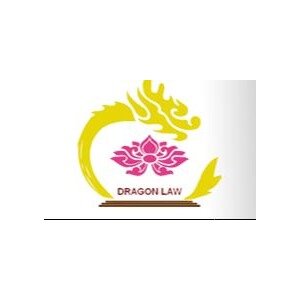Best Landlord & Tenant Lawyers in Haiphong
Share your needs with us, get contacted by law firms.
Free. Takes 2 min.
Free Guide to Hiring a Real Estate Lawyer
List of the best lawyers in Haiphong, Vietnam
About Landlord & Tenant Law in Haiphong, Vietnam
In Haiphong, as in the rest of Vietnam, the relationship between landlords and tenants is governed by various legal documents including but not limited to the Civil Code and the Law on Housing. This framework establishes the rights and obligations of both parties involved in rental agreements, and provides the legal foundation for resolving disputes. Landlord-tenant laws are designed to ensure fairness in the rental market, provide protection against unlawful eviction, and maintain quality housing standards.
Why You May Need a Lawyer
Legal assistance might be necessary in a number of common situations such as drafting or reviewing rental agreements, dealing with security deposits, facing eviction, addressing property damage, or ensuring compliance with safety regulations. Misunderstandings or disputes can often arise regarding the responsibilities of landlords or the rights of tenants. In such cases, a lawyer can help navigate the legal complexities, represent you in negotiations or in court, and work to protect your interests.
Local Laws Overview
Haiphong, like other cities in Vietnam, follows the national legal framework for landlord and tenant relationships. Key aspects include lease agreement requirements, eviction procedures, tenant rights to privacy and peaceful enjoyment, maintenance obligations, and rent control provisions if applicable. Moreover, specific local regulations may also be in place in Haiphong governing matters such as residential leasing permits, property taxes, and zoning. It is important for both landlords and tenants to familiarize themselves with these laws to avoid legal disputes.
Frequently Asked Questions
What should be included in a rental agreement in Haiphong?
Rental agreements in Haiphong should include details such as the duration of the lease, rent amount, payment method, security deposit, maintenance responsibilities, conditions on subletting, termination conditions, and any other agreed terms specific to the property in question.
How much can a landlord increase the rent at the end of a lease term?
Rent increases are usually determined by the terms set out in the rental agreement. However, they should be reasonable and compliant with any applicable laws that may regulate such increases to avoid exploiting the tenant.
What can I do if my landlord enters my home without permission?
In Vietnam, tenants have the right to privacy and peaceful enjoyment of their homes. Should a landlord enter your home without permission, you may first attempt to resolve the matter amicably by reminding the landlord of your rights. If this does not work, legal advice or action may be necessary.
Who is responsible for property maintenance and repairs?
The responsibility for maintenance and repairs generally falls on the landlord unless the rental agreement specifies otherwise or the damage is caused by the tenant's negligence or misuse.
Can a landlord evict a tenant without cause?
Under Vietnamese law, a landlord must have a legitimate reason for eviction, such as breach of contract or the need for significant repair or renovation. They must also follow the proper legal procedure including providing notice as stated in the agreement or as required by law.
Are security deposits mandatory and how much can a landlord require?
While not mandatory by law, security deposits are a common practice in Vietnam. The amount is negotiable, but typically equates to one or two months' rent.
Can a tenant sublet the property?
Subletting is permissible if the rental agreement allows it. However, the tenant must seek consent from the landlord, and the landlord has the right to refuse subletting for legitimate reasons.
How is the rental agreement terminated early?
To terminate a rental agreement early, parties must reach a mutual agreement, or one party must have a legitimate reason as defined by the agreement or applicable laws. There may be penalties for early termination without cause.
What recourse does a tenant have for illegal eviction?
If illegally evicted, a tenant can seek legal redress, potentially including compensation for any damages suffered as a result of the eviction.
How can a foreigner rent property in Haiphong?
Foreigners can rent property in Haiphong by entering into a rental contract. It is advisable for the contract to be written in both Vietnamese and the foreigner's language to ensure clear understanding of the terms.
Additional Resources
For legal advice, you can consult the Haiphong City Justice Department, which provides legal information to individuals. Additionally, VietNamNet and other online legal forums offer insights into current laws. The Vietnam Bar Federation can recommend lawyers specializing in landlord-tenant matters.
Next Steps
If you need legal assistance in landlord and tenant matters, you should:
- Gather all relevant documents, such as your rental agreement, correspondence with your landlord or tenant, and any evidence of disputes.
- Contact a reputable lawyer who specializes in landlord-tenant law in Vietnam.
- Consider reaching out to local tenant rights groups for support and guidance.
- Ensure any action taken is in accordance with the local laws to protect your rights effectively.
Lawzana helps you find the best lawyers and law firms in Haiphong through a curated and pre-screened list of qualified legal professionals. Our platform offers rankings and detailed profiles of attorneys and law firms, allowing you to compare based on practice areas, including Landlord & Tenant, experience, and client feedback.
Each profile includes a description of the firm's areas of practice, client reviews, team members and partners, year of establishment, spoken languages, office locations, contact information, social media presence, and any published articles or resources. Most firms on our platform speak English and are experienced in both local and international legal matters.
Get a quote from top-rated law firms in Haiphong, Vietnam — quickly, securely, and without unnecessary hassle.
Disclaimer:
The information provided on this page is for general informational purposes only and does not constitute legal advice. While we strive to ensure the accuracy and relevance of the content, legal information may change over time, and interpretations of the law can vary. You should always consult with a qualified legal professional for advice specific to your situation.
We disclaim all liability for actions taken or not taken based on the content of this page. If you believe any information is incorrect or outdated, please contact us, and we will review and update it where appropriate.









